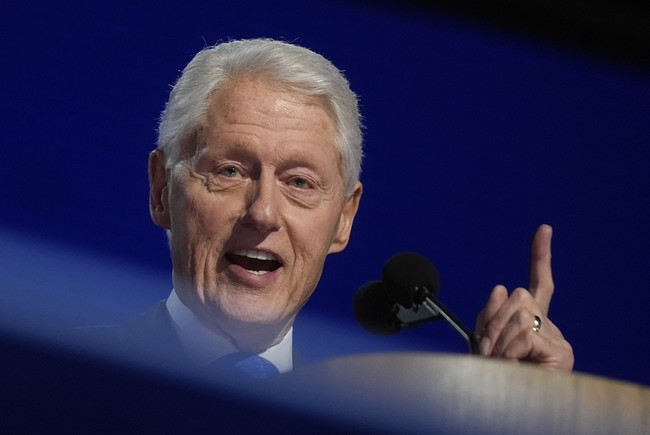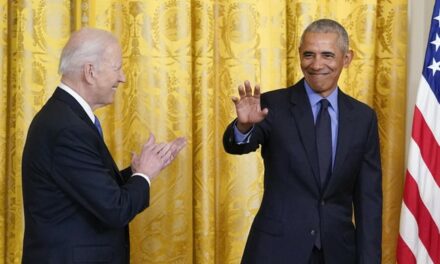We support our Publishers and Content Creators. You can view this story on their website by CLICKING HERE.

I’m sort of the Forrest Gump of American scandals: Either via proximity, professionalism, bad luck, or random happenstance, I’ve been involved in a ridiculously large number of ‘em.
Advertisement
Since the 1990s, I’ve worked closely with Kato Kaelin (OJ Simpson scandal). I’ve already written about my work with Michael Vick (dogfighting scandal). More recently, I got roped into the Gen. David Petraeus scandal. (I don’t know how to fact-check this, but I think I’m the only PR pro in my entire industry who’s ever had his media records (including off-the-record conversations) subpoenaed by the Obama administration.) I’ve even had the misfortune of being mired in minor scandals — like finally fulfilling a lifelong dream and making a movie with National Lampoon right before its CEO got busted for fraud.
(I used to wonder if the feds might conclude, “Hmm, the common denominator in all these different scandals is that Pinsker guy! Go get him, boys!”)
But it all began with the Monica Lewinsky sex scandal.
The whole thing happened in my backyard: I was attending law school at George Mason University in the Washington, D.C., area at the time. (The school is now known as the Antonin Scalia Law School. Briefly, it was called the “Antonin Scalia School Of Law”… until someone decided that the acronym for the “Antonin Scalia School Of Law” was just a bit too accurate for the legal profession.)
Monica was only a year or so older than me — and back then, I went out partying A LOT. Like, literally three or more days a week. I lived in a basement apartment in Arlington, Va. (Rental price: $700 a month.) Since it was closest to D.C., my Virginia buddies would drop by my place, “pre-game” for a few hours, and around 11 p.m., we’d do our own version of “bar review” in the nation’s capital.
Advertisement
(And then, after all the good-looking girls rejected us, we’d go home empty-handed and drown our sorrows in jalapeno poppers or whatever. Yessirree, some of the best days of my life!)
So right out of the gate, I had a heightened interest in Monica Lewinsky: We probably partied at the same clubs. As far as I know, we’ve never met, but there’s a pretty good chance we partied together and didn’t even know it.
That was about the extent of it until the George Mason University Law School offered a class on presidential impeachment. Because of our proximity to D.C., we traveled to and had guest lecturers who played leading roles in the scandal. And because we were law students in academia — and the media wasn’t allowed to cover what we were doing — the participants spoke openly and freely.
Among the people we met with: Greg Craig, who was Bill Clinton’s personal attorney during the impeachment trial and directed the president’s team of lawyers. Sen. Orrin Hatch, who served on the judicial committee. The top clerk (whose name, sadly, I can no longer recall) to Chief Justice William Rehnquist, who presided over Clinton’s trial.
As well as Ken Starr, who was the independent counsel and the author of the Starr Report, which directly led to Clinton’s impeachment.
Starr, Rehnquist, and Hatch have since died. Craig was later indicted for making false statements. (He beat the charge and was acquitted.) Weirdly, he was indicted because of a different president’s scandal: The Mueller investigation of Donald Trump, in which Craig, apparently, was caught in the legal crossfire.
Advertisement
So let’s dish: Rehnquist’s clerk admitted that the Chief Justice used to wander around the country nearly every weekend — without any security whatsoever! — and booked his own hotel rooms under the super-secret name of “William Rehnquist.” Sometimes, it was hard to chase him down. (Pre-cellphone days.) I was utterly shocked at his lack of protection. Hopefully, that’s no longer the case for Supreme Court Justices.
Hatch made no secret that he was coveting a chair in the Oval Office. We met him in the Senate, and he made no bones about planning a 2000 run for president. That always seemed to be his primary concern: Clinton’s impeachment was simply full-contact politics. (Hatch did run for president in 2000, but after finishing dead last in the Iowa caucuses, he dropped out and endorsed George W. Bush.)
Craig was a smart, well-spoken attorney. If you met him, you’d fully understand why he’s so good at his job. His main point was that President Clinton’s misdeeds didn’t rise to the constitutional standards of impeachment, and removing him “just for sex” would transform our federal system into a parliamentary one, where disgruntled legislators could manufacture bogus impeachment charges to remove unpopular presidents.
Starr, however, was the most interesting.
Advertisement
I asked him why he went into such sordid detail about Lewinsky and Clinton’s sexual affair: Did we really need to know about a stained dress or Clinton’s usage of cigars?
Starr said that he really, truly wished he didn’t have to write about it, but Clinton’s legal strategy was to deny, deny, deny. They wouldn’t admit to anything. Therefore, the only way to prove them wrong was with an overwhelming amount of evidence — laying it all out for the whole world to evaluate. According to Starr, if Clinton simply admitted to having a sexual relationship with Lewinsky, all those details could’ve (and would’ve) been avoided.
I also asked him why he kept doing press conferences late at night in his bathrobe. (If you don’t remember, media members used to stalk outside Starr’s home and ask him questions when he went outside to throw out the garbage.) He said he didn’t understand media relations all that well and hadn’t considered the optics of conducting TV interviews in front of your garbage cans — but he didn’t want to be rude either. Those reporters were just doing their jobs, after all.
The final question I asked him was if he held any personal animosity against Bill Clinton — or if he suspected Clinton held any against him. He enthusiastically answered “no” to both.
Advertisement
Just like those reporters, it was simply a job. We each had a part to play.
He told me that during the impeachment process, there was one nice moment where his eyes and Clinton’s eyes met. According to Starr, both men smiled politely and nodded their heads. In Starr’s mind, this validated how he felt all along: The independent counselor had one path. The president had another. So did the media.
Nothing personal. Just politics.

 Conservative
Conservative  Search
Search Trending
Trending Current News
Current News 







